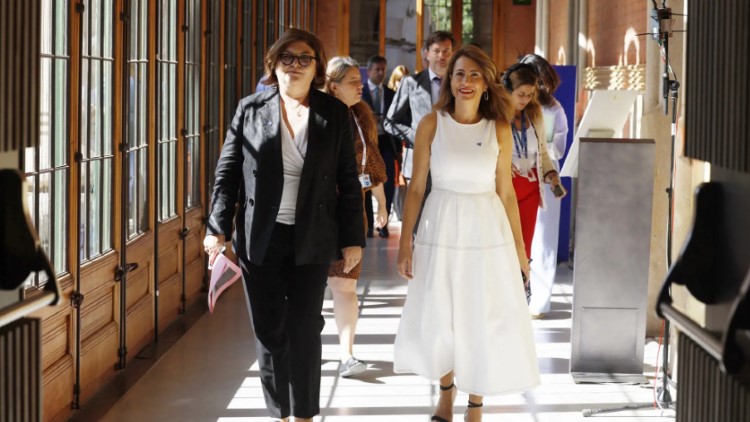The Diplomat
The acting Minister of Transport, Mobility and Urban Agenda, Raquel Sánchez, was yesterday “optimistic” about the possibility of the European Commission accepting the Spanish proposal to exclude the introduction of tolls on Spanish highways as a condition for receiving the funds from the European recovery plan.
“We are still finalizing with the Commission that agreement regarding the addendum to the Recovery, Transformation and Resilience Plan, it is not closed yet, but we are optimistic,” declared Raquel Sánchez on the occasion of the Informal Meeting of Transport Ministers of the European Union, which was held in Barcelona within the framework of the Spanish Presidency of the Council of the European Union.
“We have shared a reflection on what other measures can allow us to introduce incentives for other transport systems to be used,” she continued. “We are talking above all about rail freight transport” and about “alternatives that the European Commission has satisfactorily received,” she assured.
“In addition, we must take into account that, when this measure of the Recovery, Transformation and Resilience Plan was proposed, the same circumstances that are occurring today did not exist,” she recalled. “Last spring, the European Commission approved the directive that establishes that, as of 2027, an emissions accounting system will be established throughout the EU” and, therefore, “the establishment of a pay-per-use could mean a double tax at that time,” she warned.
Last July, Brussels confirmed that the introduction of tolls in 2024 was linked to the disbursement to Spain of more than €8 billion from the fifth tranche of the European recovery plan, adopted by the Commission and the Member States. Specifically, the issue of tolls appeared in milestone number three of the plan, by which Spain committed to creating “a payment mechanism for the use of State roads, which will begin to operate from 2024, in accordance with the “polluter pays principle.” The objective of the introduction of tolls was to encourage the use of public transport and reduce CO2 emissions from the transport sector, which represents 27% of the total in Spain.
The commitment appeared in the Sustainable Mobility Law agreed upon between the Government and Brussels and which was being processed precisely at the time when the Chambers were dissolved to call the early general elections on July 23. The PP had threatened to present appeals against tolls in all the autonomous communities where it governs and Podemos and Izquierda Unida criticized that the measure affected the most vulnerable and asked for a moratorium until there was a fair ecological transition.
Last summer, the acting Executive expressed to the European Commission its desire to renegotiate this point, within the framework of the Addendum to the Recovery Plan. According to several Spanish media reports, the Commission would have finally agreed to this request in exchange for the Government seeking other environmentally friendly alternatives, such as promoting the transport of goods and people by rail.
The European Commission assured this past Thursday that there has been “positive progress” in its evaluation of the revised recovery plan sent by Spain and the Economy spokesperson, Veerle Nuyts, assured that the evaluation work “is still underway”, including “the modification required of this measure” on tolls.







